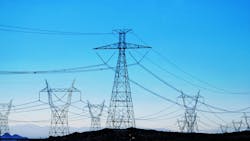Study Finds Energy Independence Now a Higher Priority Than Climate Goals Ahead of COP30
As world leaders prepare to convene in Brazil for COP30, a new global study from Siemens indicates that energy resilience and national independence have become higher priorities than international climate cooperation.
The Siemens Infrastructure Transition Monitor 2025 found that senior leaders now view a resilient energy supply as the top governmental priority for infrastructure transition — up from third place in 2023. National energy independence and the proactive management of climate risks also showed significant increases in priority.
According to Siemens, rising global instability and supply chain volatility are prompting governments to focus on security, independence, and preparedness, alongside climate mitigation.
The study surveyed 1,400 senior executives and government representatives across 19 countries. It highlights a shift from a globally coordinated clean energy approach to one emphasizing domestic resilience and regional production. The findings suggest that energy resilience is now viewed as an essential part of the clean energy transition rather than a competing goal.
“The infrastructure transition is entering a new phase whereby national goals of energy security are overtaking global collaboration on decarbonization. As systems face mounting climate and energy disruptions, resilience is no longer optional — AI, technology, and digitalization are now critical to this shift. They can empower organizations and governments to manage the complexities of renewable-based systems, ensure reliability, and accelerate the clean energy transition smarter and more sustainably,” said Matthias Rebellius, Managing Board Member of Siemens AG and CEO of Smart Infrastructure.
The report found that 62% of respondents believe future energy systems will rely more on local or regional production than on global trade. Over half said energy resilience (53%) and independence (52%) are already reaching maturity or are advanced within their countries, signaling that this transition is well underway.
Confidence in climate targets, however, is declining. More than half (57%) of global executives expect fossil fuel investment to rise in the next two years, while only 37% believe their organizations will meet 2030 decarbonization targets — down from 44% in 2023.
With confidence waning and 2026 strategies under development, Siemens cautions that failing to integrate resilience into energy planning could have economic and environmental consequences. The report emphasizes that investment in grids and digital technologies can strengthen both resilience and progress toward climate goals.
Digitalization remains central to the transition. It ranks as the second most important factor in accelerating the clean energy shift — just behind expanding energy storage. Respondents said they expect Artificial Intelligence to have the greatest positive impact, with 66% reporting that AI is helping to make infrastructure more resilient and 59% saying it supports decarbonization efforts.
